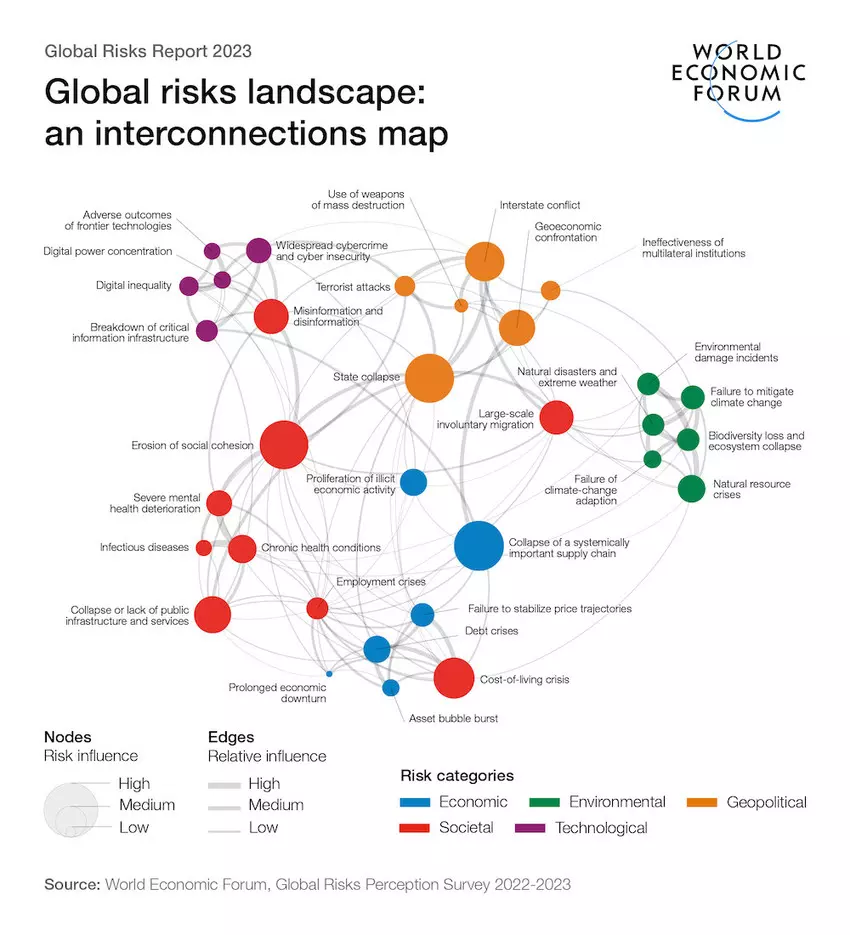From Fortune, March 15:
Among the illustrious nameplates adorning the offices of Ivy League business schools is one Joao Gomes. A Wharton Business School finance professor, Gomes is issuing a warning cry many of his peers so far have chosen to ignore: America’s burgeoning public debt mountain.
Professor Gomes is what some might call up-and-coming: He added the University of Pennsylvania’s Marshall Blume Prize to his CV in 2018 and was appointed senior vice dean of research in 2021.
But the fresh-faced expert isn’t afraid to step away from the pack if it means pushing presidential hopefuls for some answers. Gomes admits he’s “probably” more worried than his colleagues about government debt, but refuses to stay silent on a broiling issue he believes will throw the global economy into disarray.
Gomes predicts America’s $34 trillion debt burden may upset the world’s financial markets as early as next year—should a president-elect announce a raft of expensive policies.
And remember the U.K.’s mortgage meltdown following a disastrous premiership under Prime Minister Liz Truss? That’s on the cards as well, as Gomes said rates could spiral to 7% “or higher” if the topic is swept under the rug by Washington.
The warning isn’t chiming alone. Since the beginning of the year an increasing cacophony of alarm bells has been ringing out: JPMorgan Chase CEO Jamie Dimon says there will be a market “rebellion” over the issue, while Bank of America CEO Brian Moynihan says it’s time to stop “admiring” the problem and instead do something about it.
This fear is echoing outside Wall Street, too. The Black Swan author Nassim Taleb says the economy is in a “death spiral,” while Fed Chairman Jerome Powell says it’s past time to have an “adult conversation” about fiscal responsibility.
But despite this, presidential candidates likely won’t be getting on stage with promises of how they’ll wrestle down the debt-to-GDP ratio to a more palatable figure. (Experts are currently predicting it will reach 190% by 2050.)
“I wish it was a big issue, but I’m not sure it’s in the interest of either party to make it a big issue,” Gomes told Fortune. “As we discuss promises about ‘what we’re going to do with tax and programs,’ it’s going to be important to put it in the context of ‘Can we afford that?’”
He continued, “It’s a really obvious moment in history for us to say: ‘Okay, what are our choices; what can we feasibly do; who has the better plan?’ I suspect neither party is interested in that, and it might all be pushed under the rug.”
Indeed, while one party will have to make some unpopular decisions to tackle the issue, it’s a problem created by both of them. Bank of America Research’s Flow Show team, led by investment strategist Michael Hartnett, calculated in February that the deficits run up under the tenures of presidents Trump and Biden are the greatest since Franklin D. Roosevelt in the 1930s.
Trump and Biden both dealt with a crisis-struck economy trying to navigate a global pandemic. FDR, of course, was firefighting the Great Depression and then oversaw the American entry into World War II.
Gomes believes that irrespective of who contributed to the mess, one party is going to have to shoulder the responsibility for unpicking it: “Toward the latter part of the decade we will have to deal with this.
“It could derail the next administration, frankly. If they come up with plans for large tax cuts or another big fiscal stimulus, the markets could rebel. Interest rates could just spike right there, and we would have a crisis in 2025. It could very well happen. I’m very confident by the end of the decade one way or another, we will be there.” ....
....MUCH MORE
This is the sort of stuff I was thinking about in the intro to March 6's "Michelle Obama's office says the former first lady 'will not be running for president' in 2024":
...On the other hand, I'm not sure you would want to be President during the next four years, there are so many problems that have been growing and metastasizing just beneath the surface of the daily news that the person in the hot seat could end up just plain reviled.
If I were a Democrat strategist I would propose letting Donald Trump win a second term while concentrating on House and especially Senate (to bottle up judicial, including Supreme Court, nominees) races.
A Trump win would give an excuse for riots (for the visuals) and if he is handcuffed by the Legislative branch to limit the range of possible responses, you go beyond polycrisis to the omnicrisis. Throw in a bit of Frances Fox Piven with her "overwhelm the system" and "motor voter" strategies and you could see one-party rule for thirty years.
From the cult of Adam Tooze we have this at the World Economic Forum:
